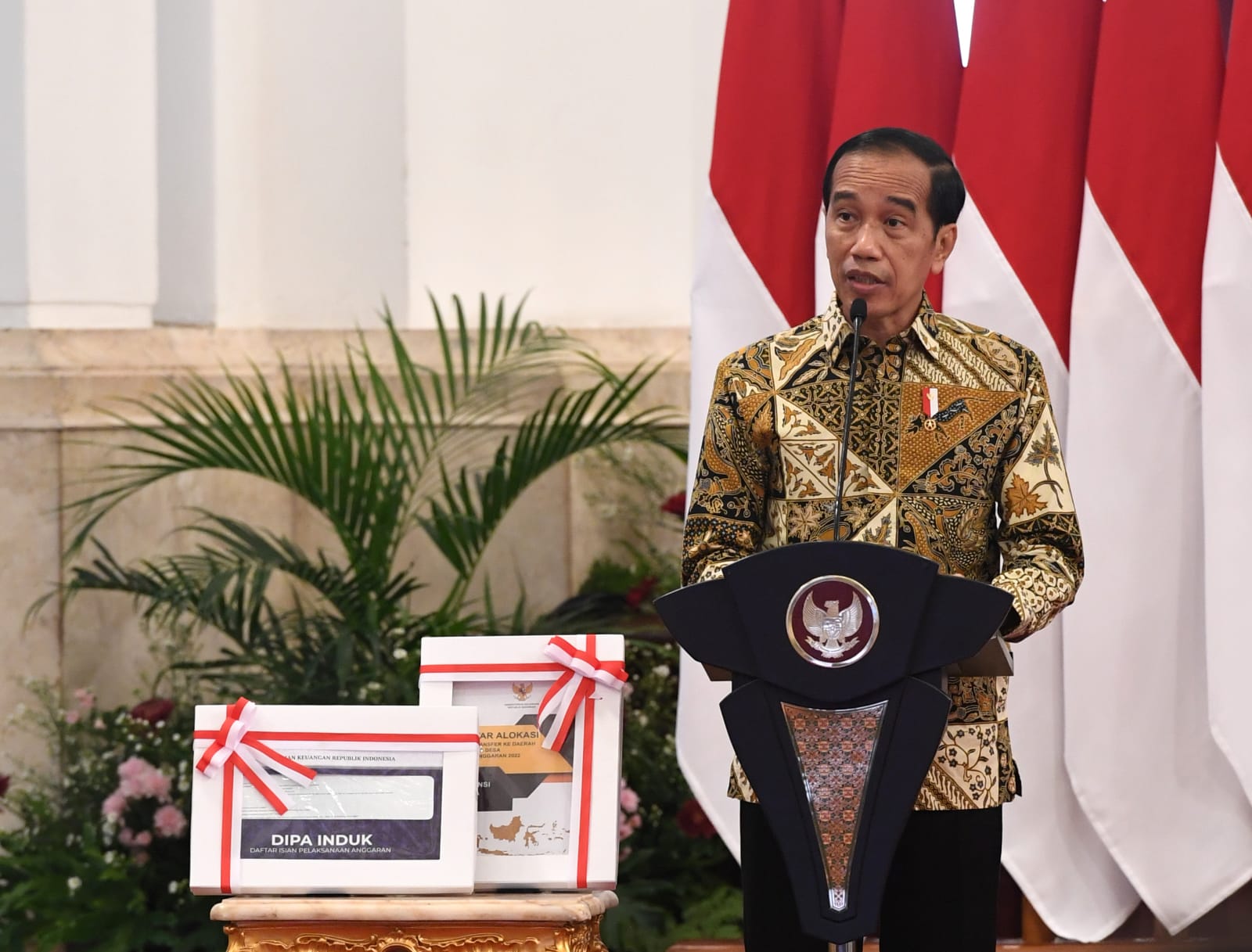President Jokowi: 2022 State Budget Must be Responsive, Adaptive to Various Changes

President Jokowi hands over the Budget Implementation List (DIPA) and List of Budget Allocations to Regional Governments and Village Funds (TKDD) for 2022 Fiscal Year, at the State Palace, Jakarta, Monday (29/11). (Photo: BPMI/Lukas)
As the COVID-19 pandemic is predicted will not be over soon, anticipatory and mitigation measures need to be prepared as early as possible so that it will not disrupt the continuity of the structural reforms and national economic recovery programs in Indonesia.
President Joko “Jokowi” Widodo made this statement when submitting the Budget Implementation List (DIPA) and List of Budget Allocations to Regional Governments and Village Funds (TKDD) for 2022 Fiscal Year, at the State Palace, Jakarta, Monday (29/11).
“Facing the uncertainty of 2022, we must design a 2022 State Budget that is responsive, anticipatory, and flexible. Always innovating and anticipating various changes that occur while continue to maintain good governance,” said the President.
He added that the 2022 State Budget will have a central role, especially to support Indonesia’s G20 Presidency.
“As the G20 Presidency, we must demonstrate our ability to deal with climate change, especially in reducing emissions and improving the environment in a sustainable manner. We have to show real action, our commitment to a green and sustainable economy,” President Jokowi said.
He went on to say that the 2022 State Budget must also encourage the revival of the national economy and support structural reforms. The President emphasized that in the upcoming year the Government will focus on six main policies, namely:
- Continue to control COVID-19 while prioritizing the health sector.
- Maintain the sustainability of social protection programs for the poor and vulnerable.
- Improve superior human capital.
- Continue the infrastructure development and increase technological adaptability.
- Strengthen fiscal decentralization to increase and distribute welfare among regions.
- Continue budgeting reform by implementing zero-based budgeting to make spending more efficient.
“In 2022, we must continue to brace ourselves to face the risks of the COVID-19 pandemic that is still looming over the world including Indonesia. Uncertainty in the health and economic sectors must be our basis in planning and implementing programs,” he said.
For the record, representatives of nine ministries/institutions were present at the event to receive DIPA from the President symbolically. Those nine ministries/institutions meet certain criteria, including obtaining Unqualified Opinion (WTP) from the Supreme Audit Agency (BPK) in the last three years, representing priority areas for 2022, and having good budgeting performance scores.
The nine ministries/institutions were Ministry of Health, Ministry of Education, Culture, Research and Technology, Ministry of Communication and Informatics, Ministry of Agriculture, Ministry of Defense, National Police of the Republic of Indonesia, Ministry of Transportation, the Supreme Audit Agency, and Coordinating Ministry for Economic Affairs. (DND/UN) (EST/MMB)








